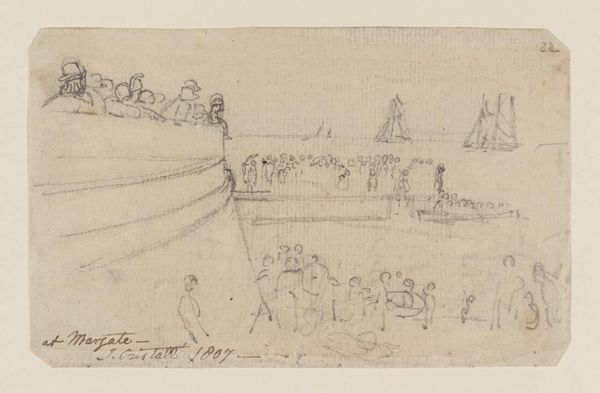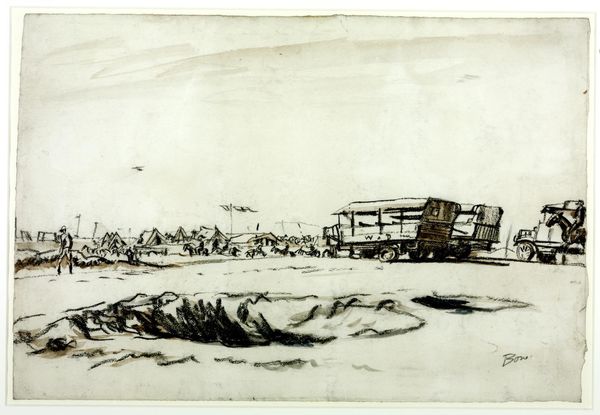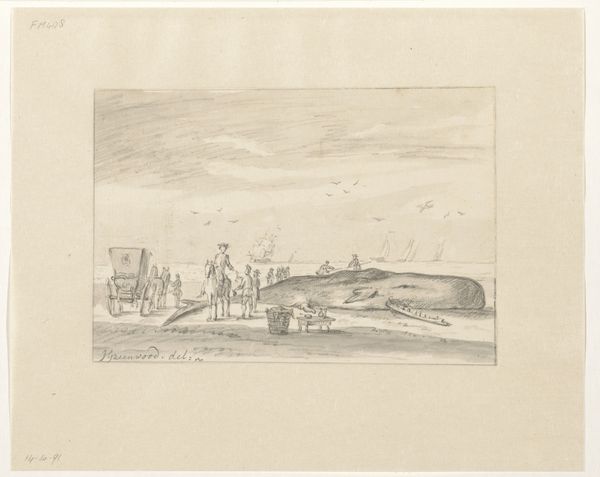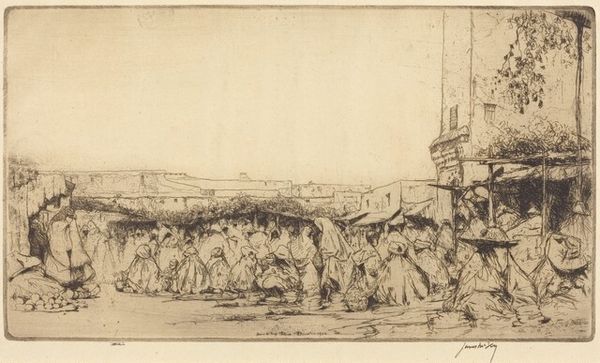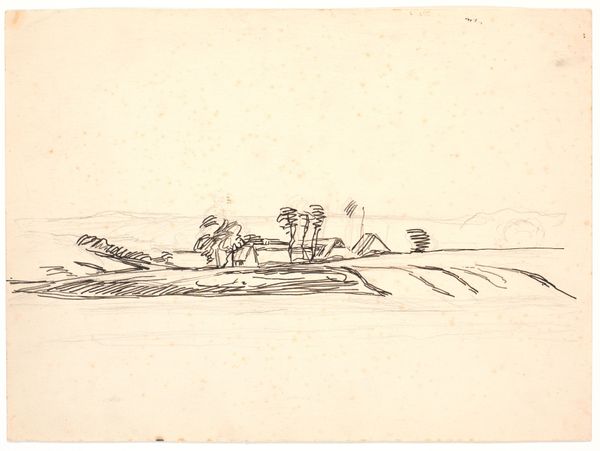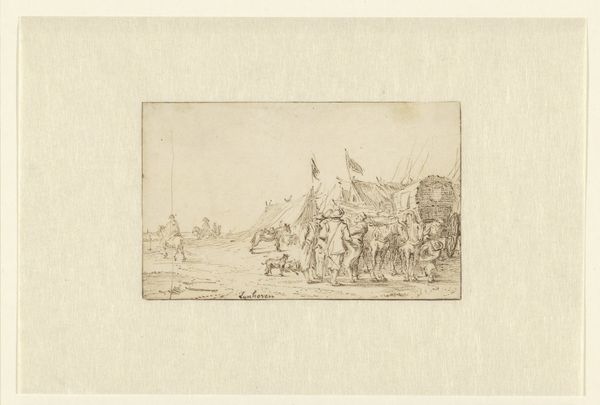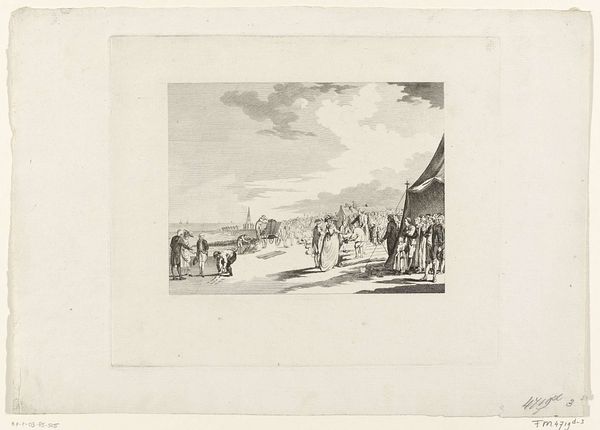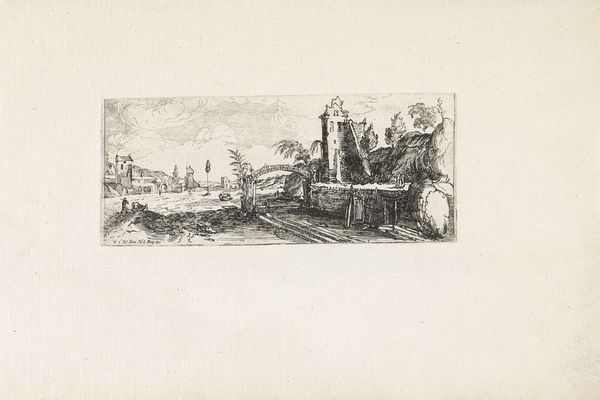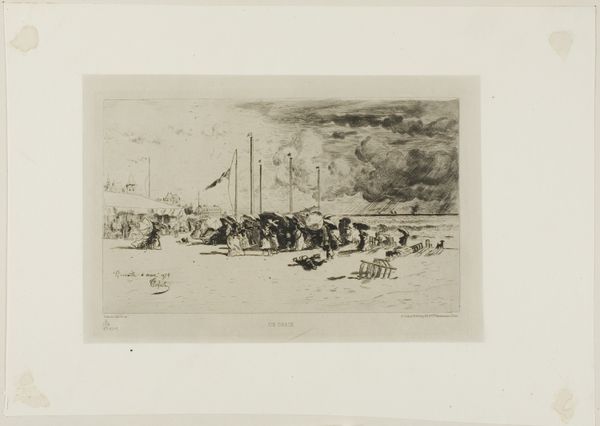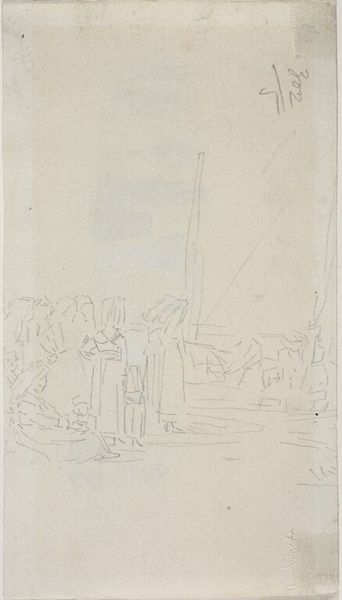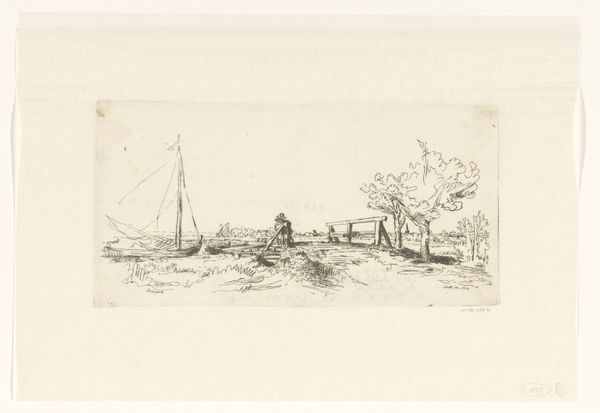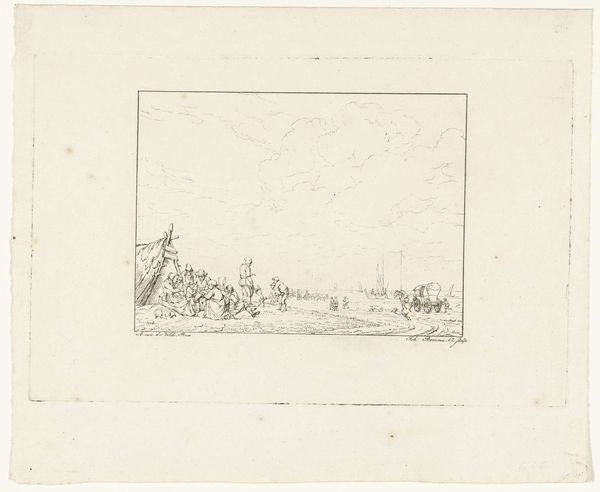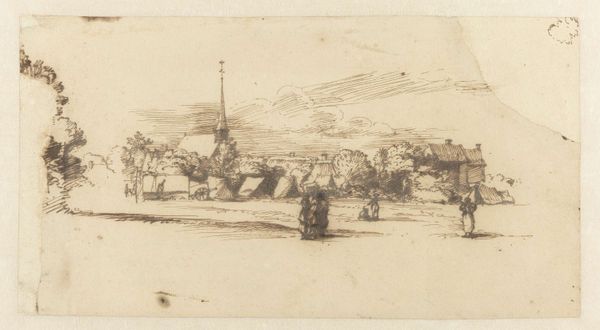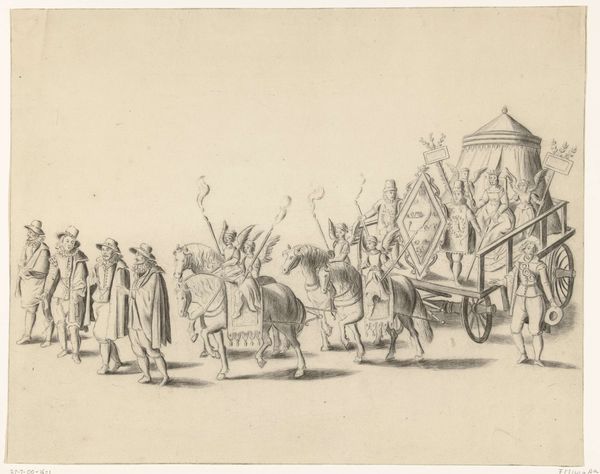
drawing, print, etching
#
drawing
#
light pencil work
#
quirky sketch
#
dutch-golden-age
# print
#
pen sketch
#
etching
#
pencil sketch
#
landscape
#
personal sketchbook
#
ink drawing experimentation
#
pen-ink sketch
#
pen work
#
sketchbook drawing
#
genre-painting
#
sketchbook art
Dimensions: height 260 mm, width 510 mm
Copyright: Rijks Museum: Open Domain
Curator: Willem Pietersz. Buytewech created this intriguing scene, "Stranded Whale at Noordwijk on December 28, 1614", in 1615. It's rendered using etching, pen, and light pencil work, currently held in the Rijksmuseum. Editor: What strikes me is the slightly absurd grandeur of the scene. It’s like a carnival has set up around this colossal, beached beast. There’s almost a festive atmosphere, despite the melancholy inherent in the whale’s demise. Curator: Yes, that interplay is critical. The horizontal composition emphasizes the whale's massive scale relative to the crowd. Consider how the figures are meticulously arranged along the beach, a dark line which guides the eye. There is tension created by this contrast of meticulous etching work against this rather macabre, even tragic event. Editor: I see what you mean. There is a formal coolness even as the little details—the people picnicking near the whale, the chap standing on top!— are oddly, darkly comic. I mean, were they poking it with sticks? There’s this distance, almost an exploitation of the event. Curator: Precisely. The landscape context is minimized, focusing the viewer on the human interaction. The artist isn't so concerned with a true portrayal of nature. But instead of social critique, I would rather argue for this: It’s a study of how human curiosity intersects with the spectacle of nature and a nascent form of media spectacle with it being documented through sketches and print. Editor: Maybe a bit of both? There’s an uncomfortable intimacy on display as well. Like those anatomical drawings where you peer inside to understand… while casually holding a cup of tea. Maybe Buytewech hints that something significant is passing. And he, in his quirky way, leaves the whale speak for itself. Curator: I concede. An apt thought with which to consider the work's broader cultural context: the transition of a worldview informed by the mysteries of nature. A transition from it to something more akin to modern scientific exploration. Editor: Nicely put, formalist friend. Nicely put, indeed.
Comments
No comments
Be the first to comment and join the conversation on the ultimate creative platform.
